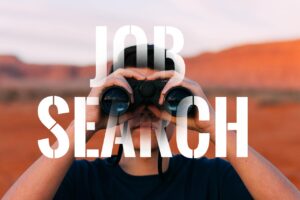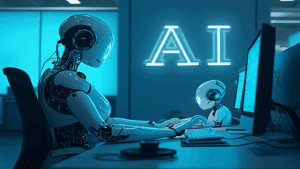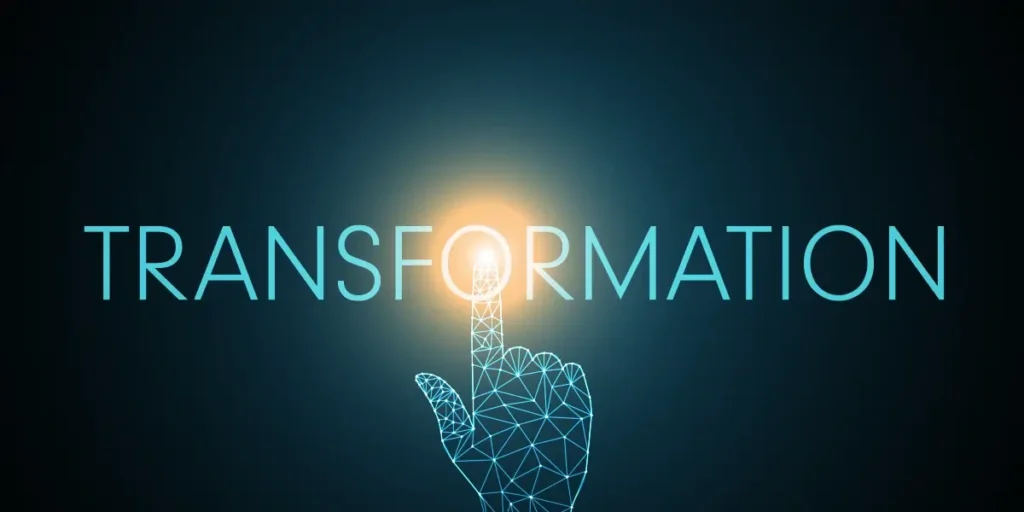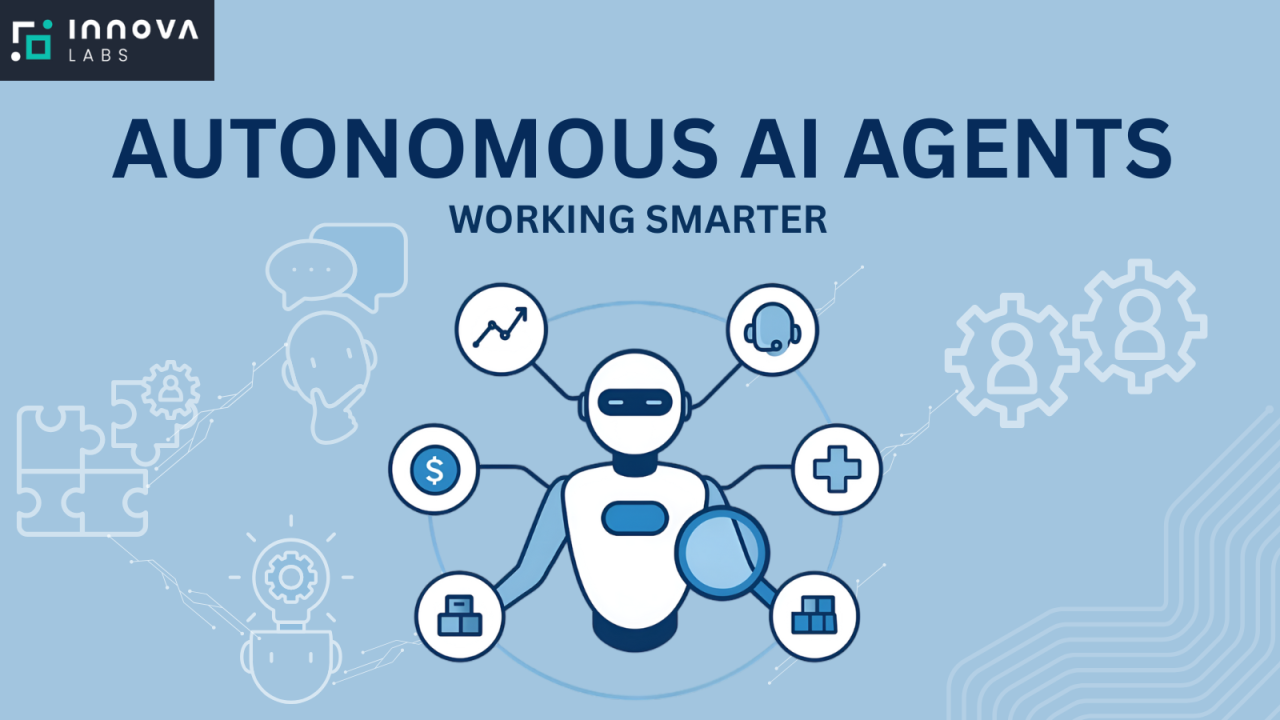How to Protect Your Job from AI Replacements in 10 ways
Artificial Intelligence (AI) is no longer just a buzzword — it’s becoming a game-changer in every industry, from customer service to legal research. With AI’s rapid growth, the fear of being replaced by machines is real for many professionals. But here’s the good news: AI doesn’t have to be your competition — it can be your biggest ally.
In this guide, we’ll break down how you can secure your career, stay competitive, and even thrive in the age of AI.
1. Understand What AI Can (and Can’t) Do
Before you can protect your job, you need to know what AI is actually capable of — and where it falls short.
-
AI excels at repetitive, rule-based, and data-heavy tasks.
-
AI struggles with emotional intelligence, complex human judgment, creativity (beyond patterns), and nuanced communication.
By identifying what parts of your role are vulnerable to automation, you can focus on developing skills in areas that AI cannot easily replicate.
2. Upgrade Your Skill Set for the AI Era
The best defense against AI replacement is continuous learning. Skills that are hard for AI to replace include:
-
Creativity & Innovation – Think beyond data and bring original ideas to the table.
-
Strategic Thinking – Analyze big-picture trends and make human-centered decisions.
-
Emotional Intelligence – Build trust, relationships, and empathy in your work.
-
Problem-Solving in Unstructured Environments – AI works best with clear rules; humans excel in ambiguity.
💡 Pro Tip: Use AI-powered platforms like Coursera, Udemy, or LinkedIn Learning to upskill in both technical and soft skills.
3. Learn to Work With AI, Not Against It
The people who thrive in the AI age are those who know how to leverage it. If AI can automate certain tasks in your role, learn how to use it to improve your productivity instead of fearing it.
For example:
-
Marketers can use AI tools like Jasper or Copy.ai to generate drafts faster.
-
Analysts can use ChatGPT for data insights and summarization.
-
Designers can use AI-powered design platforms like Canva Magic Studio to speed up their workflow.
When you position yourself as the person who knows how to get more done with AI, you become more valuable, not less.
4. Build a Personal Brand That AI Can’t Copy
If you’re just “an employee,” you’re replaceable. If you’re a recognized expert, you’re not. Building a strong personal brand can make you stand out in any industry.
Ways to do this:
-
Start sharing insights on LinkedIn or Medium.
-
Create YouTube tutorials or podcasts in your niche.
-
Speak at industry events or webinars.
AI can write blog posts, but it can’t be YOU — your story, experience, and personality are unique assets.
5. Focus on Human-Centric Skills
In many industries, the human touch is irreplaceable. Skills like negotiation, leadership, and empathy can’t be fully automated.
For example:
-
A customer may prefer speaking to a warm, understanding human rather than a chatbot.
-
A business partner values face-to-face trust-building over automated responses.
By being the bridge between technology and humanity, you become essential.
6. Stay Ahead of AI Trends in Your Field
AI technology is evolving fast — and so is its impact on your industry. Staying informed helps you prepare before change hits.
Where to learn:
-
Follow AI thought leaders on LinkedIn and X (formerly Twitter).
-
Read industry-specific AI reports.
-
Join professional AI-related communities and webinars.
💡 If you know what’s coming, you can adapt before it’s too late.
7. Become an AI Overseer, Not Just a Task Doer
AI still needs human oversight — for ethics, accuracy, and decision-making. By becoming the person who manages AI tools instead of being replaced by them, you future-proof your role.
This could mean:
-
Setting AI policies in your company.
-
Auditing AI outputs for bias or errors.
-
Training others on how to use AI responsibly.
8. Diversify Your Income Streams
Relying on a single job makes you more vulnerable to disruption. Instead, think about creating multiple income sources — especially those where you control the value.
Ideas include:
-
Freelancing in your area of expertise.
-
Creating online courses.
-
Starting a side business or e-commerce store.
This way, even if AI changes your main role, you still have other revenue sources.
9. Adapt a Lifelong Learning Mindset
The truth is, AI is not the last major shift we’ll see in our lifetimes. Careers are no longer static — they’re evolving ecosystems.
To stay employable:
-
Regularly update your resume with new skills.
-
Take micro-courses every few months.
-
Network with professionals who embrace change.
Being adaptable is more important than any single skill.
10. Think Like an Entrepreneur (Even If You’re an Employee)
Entrepreneurs see AI as a growth tool, not a threat. You can adopt this mindset in your job by:
-
Suggesting AI-powered process improvements.
-
Volunteering to lead automation projects.
-
Finding ways to increase revenue or reduce costs with AI.
When you position yourself as an innovation driver, you become too valuable to replace.
Final Thoughts
AI isn’t here to replace everyone — but it will replace those who resist adapting. By learning to work with AI, strengthening uniquely human skills, and keeping your personal brand strong, you can turn AI from a threat into your biggest competitive advantage.
The future of work belongs to those who can blend technology with humanity — so start today, and you’ll be the one shaping the AI revolution, not fearing it.
FAQs
Q1. Can AI really replace my job?
Yes, AI can automate certain roles, especially repetitive and rule-based tasks. However, creative, strategic, and human-interaction jobs are less likely to be fully replaced.
Q2. What jobs are safe from AI?
Jobs that require emotional intelligence, critical thinking, and human judgment—such as therapists, teachers, creative writers, and senior managers—are more resistant to AI automation.
Q3. How can I make my career AI-proof?
By focusing on upskilling in AI-complementary areas like data analysis, creative problem-solving, leadership, and digital literacy.
Q4. Should I learn AI skills to protect my job?
Absolutely. Understanding AI tools relevant to your industry will help you work alongside AI rather than compete against it.
Q5. Will AI create more jobs than it replaces?
In many industries, yes. While AI may replace certain tasks, it also opens up new opportunities in AI management, development, and oversight.
https://bitsofall.com/cant-write-code-use-these-10-ai-tools-to-do-it-for-you/





